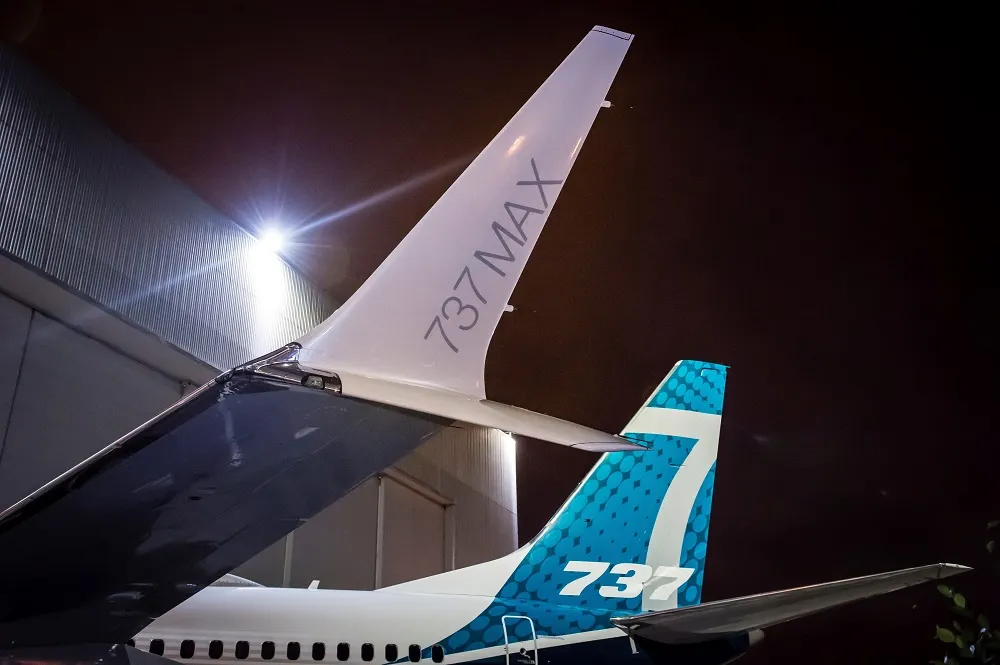
European regulator could approve 737 MAX in November
Sep 25, 2020

The European regulator, the European Union Aviation Safety Agency (EASA), is expected to approve the Boeing 737 MAX for flights as early as November. This approval comes after extensive scrutiny and modifications made to the aircraft following its grounding due to safety concerns. EASA's assessment is crucial for Boeing, as it seeks to restore confidence in the 737 MAX model and reintegrate it into the European market. The decision could pave the way for airlines in Europe to resume operations with the aircraft, significantly impacting the aviation industry and Boeing's recovery efforts after the prolonged grounding.
The European aviation regulator, the European Union Aviation Safety Agency (EASA), is poised to approve the Boeing 737 MAX by November. This decision follows extensive reviews and evaluations of the aircraft's safety and operational capabilities. The approval is a significant milestone for Boeing as it seeks to restore confidence in its flagship aircraft after a prolonged grounding period.
Background on the 737 MAX
The Boeing 737 MAX has faced significant challenges since its initial grounding in March 2019. The aircraft was involved in two fatal crashes, leading to extensive scrutiny from regulators worldwide. As a result, Boeing undertook a comprehensive review and modification of the aircraft's systems, particularly the Maneuvering Characteristics Augmentation System (MCAS), which was linked to the accidents.
Importance of EASA Approval
The approval from EASA is crucial for Boeing's recovery and the overall aviation industry. With the European market being one of the largest for commercial aviation, gaining EASA's endorsement will enable Boeing to resume deliveries to airlines in Europe and restore the aircraft's reputation.
Timeline of Events
Here's a timeline detailing the significant events leading to the anticipated approval:
| Date | Event |
|---|---|
| March 2019 | 737 MAX grounded worldwide following two crashes. |
| November 2020 | FAA lifts the grounding order for the 737 MAX. |
| 2021 | EASA begins its independent review of the 737 MAX. |
| September 2023 | EASA announces it is nearing approval of the 737 MAX. |
| November 2023 | Expected approval from EASA for the 737 MAX. |
Regulatory Process and Confidence Building
The regulatory process for approving the Boeing 737 MAX has involved rigorous testing and evaluation procedures. EASA has conducted thorough inspections and assessments to ensure that all safety concerns have been addressed. This process included:
- Review of software modifications, particularly MCAS updates.
- Comprehensive pilot training requirements.
- Operational assessments of the aircraft in various flight conditions.
By completing these steps, EASA aims to ensure that the 737 MAX meets the highest safety standards before it can return to the skies. The approval will not only benefit Boeing but also reassure airlines and passengers about the aircraft's safety.
Impact on Airlines and the Aviation Market
The return of the Boeing 737 MAX to the European market is expected to have a significant impact on airlines. Many carriers have been eagerly awaiting the aircraft's approval to expand their fleets and enhance operational efficiency. Airlines that have been affected by the grounding, such as Ryanair and Norwegian Air, are likely to see an increase in capacity and improved route options once the approval is finalized.
Additionally, the return of the 737 MAX will help stimulate the aviation market, which has been recovering from the pandemic's impact. Airlines will be better positioned to meet the growing demand for air travel as restrictions continue to ease across Europe.
Global Perspective on Boeing 737 MAX
While EASA's approval is a critical step, it is essential to recognize that the Boeing 737 MAX's return is part of a broader global context. Other aviation authorities, such as the Federal Aviation Administration (FAA) in the United States, have already approved the aircraft, and various countries have gradually lifted their bans on the MAX.
As more regions accept the 737 MAX, Boeing's recovery trajectory will continue to improve. The aircraft's advanced technology and fuel efficiency make it an attractive option for airlines looking to modernize their fleets and enhance sustainability.
Conclusion: A New Era for Boeing
With EASA's anticipated approval of the Boeing 737 MAX in November, the company is on the verge of turning a new chapter in its history. The approval will not only help restore confidence in the aircraft but also facilitate the recovery of airlines and the broader aviation market. As Boeing continues to work on rebuilding its reputation, the focus will remain on ensuring safety and operational excellence, crucial elements for gaining the trust of airlines and passengers alike.
In summary, the approval of the 737 MAX by EASA signifies a pivotal moment that could influence the future of commercial aviation in Europe and beyond. The industry watches closely as Boeing prepares for what could be a significant rebound in the coming months.
Related Articles

Explore Thailand: The Best Islands to Visit for Paradise, Adventure, and Relaxation

The Ultimate Guide to the Best Islands in Thailand for Your Next Getaway

Do babies need passports? How to get a passport for a newborn

How to get a U.S. passport fast: here’s how to expedite the process

What is Mobile Passport Control: 5 reasons why you should use it

SENTRI vs. Global Entry: A detailed guide

Do you need a passport to go to the Bahamas? Let’s find out

Do you need a passport to go to Mexico? A detailed guide

Do you need a passport to go to Canada? We got the answer

Do You Need a Passport for a Cruise: An Essential Travel Guide

Booster Seat Requirements: All the Rules to Follow in Your Rental Car

What Are the World’s Most Powerful Passports, and How Does Yours Rank?

How to Take a Passport Photo at Home: A Helpful Guide

You've got to have heart! Southwest's new livery

Your opinion: Should water be free on low cost carriers?

Young women bolder than guys as solo travellers
